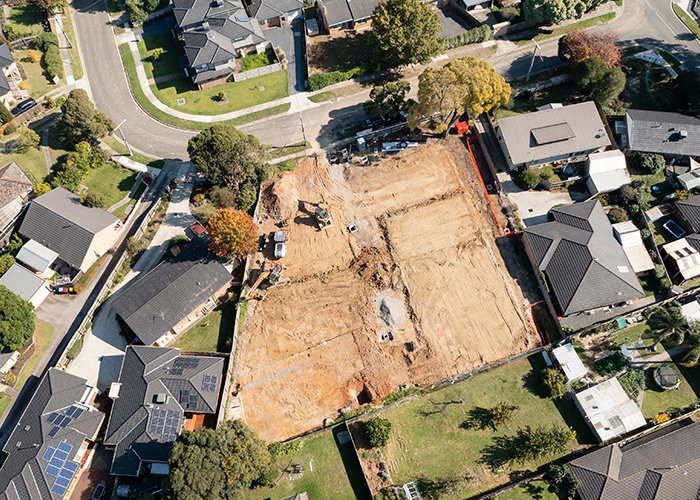Authored by: David Grace and Stephanie Gibbons
In a recent decision, the High Court of Australia considered the nature of an ‘understanding’ for the purposes of the restrictive trade practices provisions within Part IV of the Competition ...

Queensland’s land tax hike is drawing closer, with the start date of 30 June 2023 looming. These new measures are likely to significantly affect small to medium businesses and individuals with multi‑jurisdictional landholdings.
From 30 June 2023, land tax will be calculated on the whole of an entity’s Australian based landholding using the current Queensland land tax rates and thresholds. Tax will then be applied on the proportion the Queensland land value bears to the total Australian land value.
What this means is that entities with landholdings in Queensland and any other state or territory may face a significantly increased Queensland land tax bill.
First and foremost, determine whether you have multi-jurisdictional land holding entities that together have a taxable land value in excess of:
The next step is to determine whether there are any exemptions available that will exclude the value of your interstate land from the land tax calculation. These exemptions include primary production land, home exemptions, care accommodation, moveable dwellings parks, retirement villages, transitional homes, charitable institutions and aged care. If these are unavailable, you may want to consider restructure options.
With enough lead in time, there may be opportunities to restructure your landholdings into a silo holding structure. This can include utilising current duty exemptions (i.e. the Queensland small business restructure exemptions or state‑based corporate reconstruction exemptions) and appropriate CGT rollovers and concessions (i.e. small business concessions) to manage the tax costs.
In the absence of a duty concession or CGT rollover/concession, you will need to:
1. calculate what the current increased land tax cost of owning the Queensland property will be compared to the duty and tax costs of implementing a restructure
2. determine whether that cost justifies implementing the restructure and, if not, whether broader disposal decisions about the investment asset need to be made.
Care should be taken when implementing any restructure, as the Queensland Land Tax Act contains strong anti‑avoidance provisions for schemes entered into for the sole or dominant purpose of obtaining a land tax benefit. Accordingly, there should be sound asset protection and commercial reasons for implementing any restructure.
Other planning strategies include:
When making future investments, consider what you are buying, the reasons for buying it, how that acquisition fits with your broader group structure, asset protection strategies and the administration costs associated with the adopted structure.
As a general rule, buy new Queensland land investments in clean skin entities. Whether that is a company or trust, you should not be using entities with existing interstate landholdings to acquire new Queensland land.
Where the acquiring entity is a trust, seek structuring advice on the precise terms of the deed and its appropriateness for the investments. Off the shelf trust deeds with broad objects clauses are no longer suitable for these types of acquisitions. There are a number of reasons for this:
1. Payroll tax: where there are associated businesses involved in the group, these broad beneficiary clauses can lead to the trust’s asset becoming the subject of enforcement action for unpaid payroll tax. This is because, while there are minimal land tax grouping provisions in Queensland, there are extensive payroll tax grouping provisions that make group members jointly and severally liable. This was the case in CSR v Smeaton Grange Holdings Pty Ltd.
2. Duty and AFAD: having broad classes of beneficiaries with income and capital rights runs the risk of incurring additional foreign acquirer’s duty in Queensland.
3. FTDT: if a family trust election is required to be made for the asset owning trust, a narrow class of beneficiaries acts as an initial impediment to a distribution outside the family group now and in the future.
4. Practical implementation: broad all-encompassing beneficiary clauses with subsequent poorly drafted exclusion clauses for foreign beneficiaries can lead to practical difficulties where family members cease to reside in Australia or marry non-residents.
Review current landholding now and determine whether these new land tax changes will affect you. If they do, and the increased land tax impediment is significant, investigate what restructure options are available and whether they fit into a broader asset protection/estate planning strategy.
Watch out for your annual land valuation on 31 March 2023 and, if it is excessive, take the opportunity object to it or claim deductions for site improvements. You have until 30 May 2023 to object.
Immediately review any proposed Queensland land purchase and obtain advice on the acquiring entity and precise terms of the trust’s deed (if using one).
On or before 31 October 2023 (or 30 days from receiving your 2023 land tax assessment, whichever is earlier), you will need to set up a QRO Online Account (available here – link) and declare all interstate landholdings. It is an offence not to make this declaration.
If you would like us to review your situation, landholding or proposed Queensland land acquisition to determine the effect of these changes and consider you options, please contact a member of our team.
This publication is for information only and is not legal advice. You should obtain advice that is specific to your circumstances and not rely on this publication as legal advice. If there are any issues you would like us to advise you on arising from this publication, please let us know.
Subscribe to our interest lists to receive legal alerts, articles, event invitations and offers.


Cooper Grace Ward acknowledges and pays respect to the past, present and future Traditional Custodians and Elders of this nation and the continuation of cultural, spiritual and educational practices of Aboriginal and Torres Strait Islander peoples.
Fast, accurate and flexible entities including companies, self-managed superannuation funds and trusts.